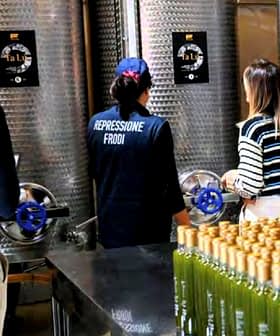Olive Oil Scandal in Lebanon Leads to Calls for Reform
Olive oil in Lebanon has been found to contain toxic chemicals, leading to health risks, with calls for stricter monitoring and regulation by various organizations. Proposed new laws will require glass packaging, origin labeling, and bottling dates for olive oil products to ensure safety and quality, but these reforms may not be ratified until a new government is in place later this year.
Despite all the benefits of olive oil, it can stil be risky to eat in Lebanon where recently the Agriculture Ministry and Consumers Lebanon reported that there were several olive oil brands on the market containing toxic chemicals. Also confirmed by the head of Consumers Lebanon, Zuheir Berro, were reports that show a lack of monitoring in Lebanese law that caused the fake olive oil issue in the market. Zuheir Berro said several olive oil producers in Lebanon were adding certain chemical ingredients like benzopyrene and acrolein during the extraction stage of olive oil production, which create a great risk for human health.
The statement made by the National Committee for Oils and Fats (NCOF) in Lebanon noted that the risks of the toxic chemicals used in the tainted olive oils could increase chances of cancer. NCOF warned the public by saying that “the brains of children may be permanently harmed from consuming such oil products because fats present in such oils will, in the long run, substitute the healthy fats of the brain”.
While both NCOF and Consumers Lebanon called for the Agriculture Ministry to monitor imported and locally produced oil products closely, Parliament Member Atef Majdalani held a press conference addressing the issue of fake olive oil. Majdalani called to put forth a draft law on food security because of “the dangerous scandals about food products in Lebanon namely counterfeited olive oils presenting high risks of cancer diseases. This law-draft orders to form an independent commission to control the food production’s cycle in all its stages.”
 Meanwhile, the Daily Star reported today that New labeling laws for olive oil will indeed be introduced in response to the scandal. “All [olive oil farmers and manufacturers] that do not hurry to register presses and factories will be considered to be [violating the law],” Agriculture Minister Hajj Hassan said at a news conference.
Meanwhile, the Daily Star reported today that New labeling laws for olive oil will indeed be introduced in response to the scandal. “All [olive oil farmers and manufacturers] that do not hurry to register presses and factories will be considered to be [violating the law],” Agriculture Minister Hajj Hassan said at a news conference.
The proposed law would require glass packaging, origin labeling, and the bottling date. A new set of standards and certification program would be put in place. Despite broad support among the parties, the reforms are not expected to be ratified until a new government takes place later this year.






